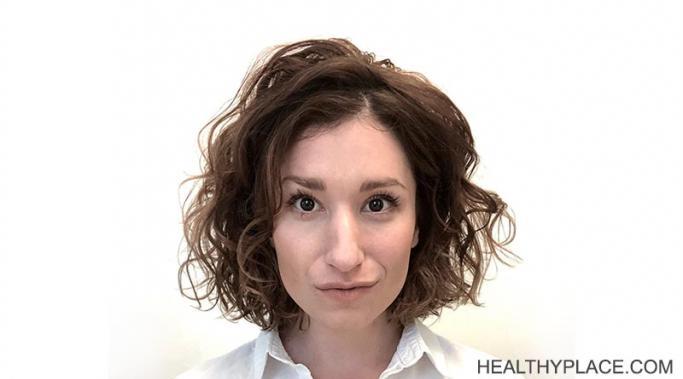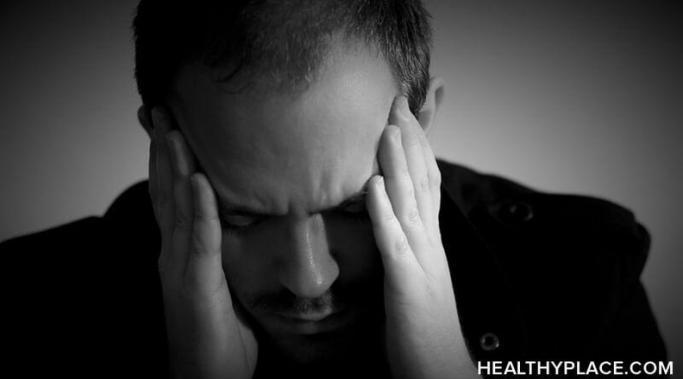Blogs
My name is Britt Mahrer, I’m a new blogger at HealthyPlace. I’ll be writing on "Building Self-Esteem." This is a topic I’m passionate about and eager to explore. My own self-esteem exploration has taken me many unexpected places, including living as a monk in Thailand, musically directing a Broadway workshop, founding a non-profit organization, dancing and singing on a piano, teaching yoga and circus acrobatics, and fighting mixed martial arts (MMA). My journey with self-esteem has also taken me to some dark, miserable places I never thought I would escape. Needless to say, I have experienced many successes in my life and lived through many failures.
Massage for anxiety may just be the feel-good, anxiety-management technique that many of us have been seeking. Wouldn't it be wonderful to be able to use a tool that not only reduced anxiety but was pleasurable, too? Massage can be relaxing, but is that relaxation enough to reduce anxiety? Here's a look at massage for anxiety so you can decide if you want to add this technique to your anxiety-reducing toolbox.
For those with depression, isolation is often something we experience. Many times we don't have the energy or desire to go out and socialize; however, living in isolation is no true life at all. We don't have to allow our depression to keep us isolated. We just need some guidelines so we can tell the difference between isolation and alone time.
When was the last time any of us heard someone talk about a connection between men and eating disorders? My hunch is, not recently. And that's because this segment of the eating disorder population is rarely discussed. A common assumption is that eating disorders only affect women and girls, but this eating disorder stereotype is harmful—sometimes even lethal—to the estimated 10 million boys and men who suffer from this illness in the United States. Due to a lack of awareness about eating disorders as nondiscriminatory between genders, men often feel amplified shame around their struggle which can deter them from seeking out resources, treatment, and a healing community. So as a culture, we need to break this harmful stigma. We need to talk vulnerably and honestly about men and eating disorders.
Depression and low self-esteem often go hand in hand. When you constantly beat yourself up, this can make you vulnerable to depression. Having an extremely low opinion of yourself can lead to depressive symptoms such as persistent sadness, guilt, hopelessness, and lack of motivation. A vicious cycle can then ensue. The symptoms of depression can lead to even lower self-esteem. This makes the depression worse.
Tough times are a natural part of life, but you can increase your resilience to make getting through them easier. Although biology plays a role in our susceptibility to mental health symptoms, we are not wholly at the mercy of our genetics. Several personality attributes contribute to a person's ability to withstand adversity. What's more, we can increase our resilience by engaging in an intentional practice of optimism.
I was not surprised by my schizophrenia diagnosis. I realized that I was likely suffering from psychosis six weeks prior to my schizophrenia diagnosis when the symptoms of a patient alerted me to the nature of my own illness. I engaged in a bit of quick research on the subject and inadvertently ensnared myself in a psychotic delusion: I could not tell anyone that I was suffering from psychosis. In my mind, my employer and the government were closely monitoring my Internet history and would determine that I was a fraud. That was the first time I felt like a fraud. It wouldn't be the last.
Think small improvements to reduce anxiety -- what does that mean? I'll explain. This past week, I was walking to work and had to stop for what felt like an inordinately long light. Eventually, it changed and I realized that the whole time I was waiting, I could have crossed the adjacent street. Now, this other street is much smaller than the one I was trying to cross, but even so, it would have brought me closer to my destination than just standing there waiting. Oddly enough, this experience made me think about anxiety and the costs of waiting for a major change instead of looking for other, small opportunities to improve.
The Cambridge Advanced Learner's Dictionary & Thesaurus defines small talk as a "social conversation about unimportant things, often between people who do not know each other well." Almost every time you leave your house, you probably find yourself engaging in this type of interaction. Many people dislike it because it might seem forced and insincere. While some people might simply feel obligated to talk to you, others genuinely want to have a conversation. Read this article to learn about how to benefit from small talk.
Fiction is a great way to explore ourselves, the world around us, and our imaginations, but it also has the potential to spread mental illness myths. Not surprisingly, that includes myths about the people who live with mental illness. Unfortunately, the myths are more often than not harmful to people with mental illness in the real world.










I believe she will only be able to rid herself of her demons, and hopefully her BPD as well, when she's ready to confront the abuse of her father. If she can put the blame where it belongs, she may stop projecting that victim/perpetrator cycle on the present men in her life. These demons are a metaphor for the purgatory she has created for herself. That reality has consequences in the real world, but it need not be real in the tangible sense. Exorcising her demons will require the expenditure of real physical energy and probably the destruction of aspects of her personality. If this ever happens, and it's possible but not probable, then these demons will evaporate. They are only as real as one's personality is real. In short, reality is not the question, it's what you make of the things you feel to be real.